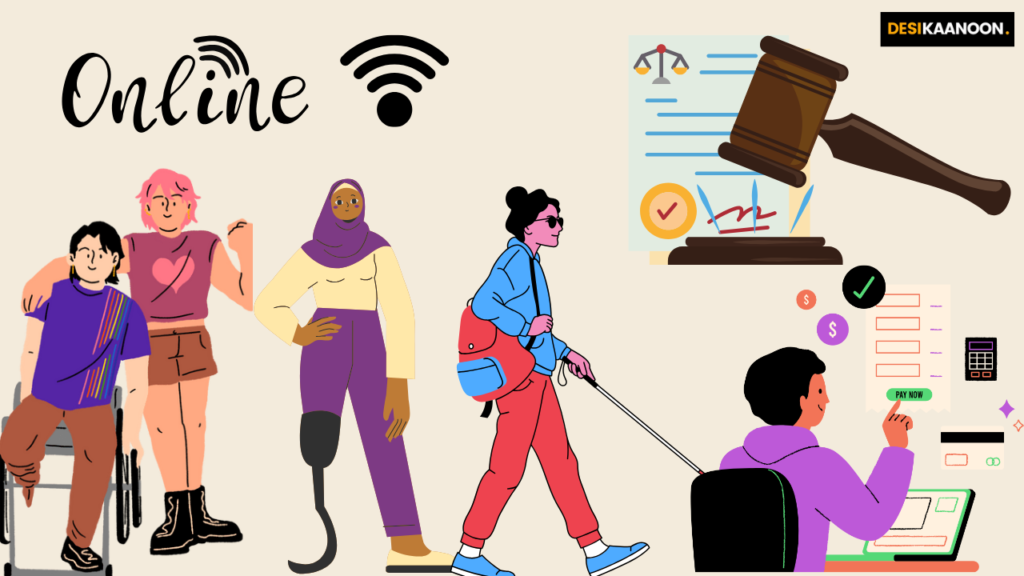Aastha Pareek
The Kerala High Court in the case of The Kerala Public Service Commission & anr v Sabeena KS & anr. recently underscored the obligation of the state to ensure that digital platforms are accessible to persons with disabilities, signaling a significant move toward the realization of digital inclusivity. This judgment aligns with India’s broader legal framework, which already recognizes the rights of persons with disabilities, particularly through the Rights of Persons with Disabilities Act, 2016 (RPwD Act). The court’s ruling resonates with the principles enshrined in the Constitution of India, which mandates equality, non-discrimination, and the right to life with dignity for all citizens, including those with disabilities.
With the increasing reliance on digital platforms for access to essential services, information, and education, digital accessibility has become more than a matter of convenience. It is now a fundamental right. The failure of digital platforms to cater to the needs of persons with disabilities effectively marginalizes them from participating fully in society. This issue is particularly critical as public and private entities increasingly transition to online platforms for the delivery of services such as banking, healthcare, education, and governance.
The Kerala High Court’s ruling brings to light the necessity for governments to enforce existing legal provisions and ensure compliance with accessibility standards. Under the RPwD Act, there is a clear mandate for appropriate measures to be taken to ensure that persons with disabilities have equal access to all public and private digital platforms. The Act emphasizes the importance of removing physical and digital barriers that inhibit their ability to participate in various aspects of life on an equal footing with others.
The court also highlighted the role of the state in fostering an inclusive digital ecosystem. This includes the formulation and implementation of policies that require digital service providers to adopt universal design principles, ensuring that digital content and services are usable by all, including individuals with visual, auditory, cognitive, or motor impairments. The court’s observations draw attention to global standards such as the Web Content Accessibility Guidelines (WCAG), which provide comprehensive guidance on making web content more accessible to people with disabilities. Compliance with such guidelines ensures that websites are navigable, readable, and usable by individuals with diverse abilities, fostering inclusivity.
Moreover, this ruling touches on the broader concept of digital rights, which recognizes the right of every individual to access and utilize digital technology in an equitable manner. This concept is intrinsically linked to the right to education, healthcare, and employment, all of which increasingly require digital access. The court’s decision aligns with international norms, particularly the United Nations Convention on the Rights of Persons with Disabilities (UNCRPD), which mandates state parties to ensure that persons with disabilities enjoy full and equal participation in society, including access to technology and the internet.
The judgment places responsibility on both public and private entities to ensure compliance with accessibility standards. Public institutions, in particular, must lead by example by ensuring that their websites and digital services are fully accessible. This includes making use of screen readers, providing alternative text for images, ensuring keyboard navigability, and offering subtitles or transcripts for multimedia content. Private entities, especially those offering essential services, must also be held to the same standards to prevent any form of digital exclusion.
While this judgment marks an important step forward, the challenge of ensuring comprehensive digital accessibility remains. Effective enforcement mechanisms are required to ensure that digital platforms comply with accessibility standards. Additionally, continuous monitoring and feedback mechanisms are essential to address emerging accessibility issues as technology evolves.
In conclusion, the Kerala High Court’s ruling underscores the state’s responsibility to ensure that persons with disabilities are not left behind in the digital age. By upholding the principles of equality and non-discrimination, the court has reinforced the need for a more inclusive digital environment. The ruling not only affirms the rights of persons with disabilities but also calls for systemic changes in how digital platforms are designed and regulated, ensuring that all individuals, regardless of their abilities, can participate fully in the digital world.
Click here to access the order

